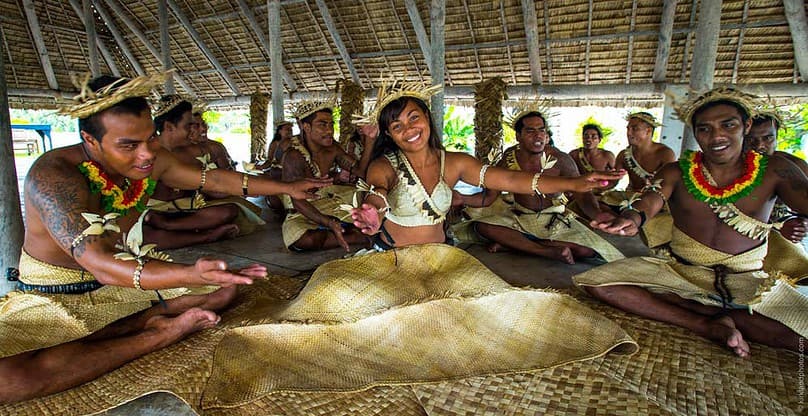What are the Causes of Poverty in Kiribati?

Kiribati is an island country scattered over the vast Pacific Ocean. The people believe in a very simple way of life, peace and harmony. Their traditional dances are a visual delight and a unique expression of their culture. The economy of Kiribati depends mostly on fishing, cutting copra (dried coconut kernels) and agriculture. In the more urban South Tarawa, land and fishing resources are almost completely depleted and there is a serious lack of job opportunities.
According to the World Bank, approximately 22% of the population lived below the basic needs poverty line between 2019 and 2020 and the number is higher in South Tarawa. Female-headed households are more vulnerable to poverty and one-third of children in Kiribati are from households living in poverty. The unemployment rate in Kiribati was estimated at 11% in 2020. Factors contributing to poverty in Kiribati include a lack of skilled workers, weak infrastructure and its remote location away from international markets.
Causes of Poverty
These eight issues sum up the causes of poverty in Kiribati:
- Employment opportunities in Kiribati are scarce. Only 48.1% of the 72,300 working-age population are participating in the labor force and nearly half of its youth population is not in employment, training or education.
- Loss of traditional skills among the youth, who are not as ready as their predecessors to live in the hardships that plague rural life.
- Internal migration to South Tarawa is increasing, which has caused overcrowding, poor health and sanitation problems. According to the country’s 2005 Census, only 49% of people living in South Tarawa were born there.
- Degradation of natural resources due to overutilization. This results in changes in climatic conditions that are bound to destroy the fragile ecosystem on which people depend for their subsistence.
- Gender inequality: women have a lower status and lack any decision-making powers. There is also a stigma against people with disabilities.
- High debts incurred from informal loan providers give rise to social abuse.
- Population growth is one of the most important causes of poverty in Kiribati, as family planning is shunned by the Catholic Church as well as Kiribati society in general.
- Kiribati depends on imports for most of its food supplies, making the country vulnerable to price changes. Even a household that does not identify itself as living in poverty struggles with poor diet and inadequate nutrition.
Efforts by the Government of Kiribati
The informal, traditional care system characteristic of the Kiribati way of life is disintegrating and remittances from seamen are falling. However, the government has shown its commitment to fighting against the causes of poverty in Kiribati through specific programs aimed at promoting equity:
- Primary and junior secondary education are free.
- Most health services are provided for free through health clinics.
- The Elderly Fund is a non-contributory pension scheme that pays monthly payments to people aged more than 65.
- The Copra Fund Subsidy helps maintain the production level, discourages migration and guarantees a minimum purchase price from the government.
- The Kiribati Provident Fund (KPF) for formal sector employees. The initiative has a member’s loan scheme that allows members to borrow part of the KPF fund and return it with interest.
- The Import Levy Fund subsidizes the cost of transportation to maintain prices at the same level.
- A price control ordinance caps prices on basic commodities.
- Water and electricity are subsidized for households in South Tarawa.
To combat poverty in Kiribati, all efforts have to be focused on creating direct employment and making the population more employable. The government needs to make major investments in its infrastructure. Also, the growth of private sector industries is very important for Kiribati to become self-sufficient. According to the Department of Foreign Affairs and Trade, these efforts, along with a progressive social policy, are Kiribati’s best chance to fight poverty.
– Tripti Sinha
Photo: eTurboNews
Updated: May 27, 2024
